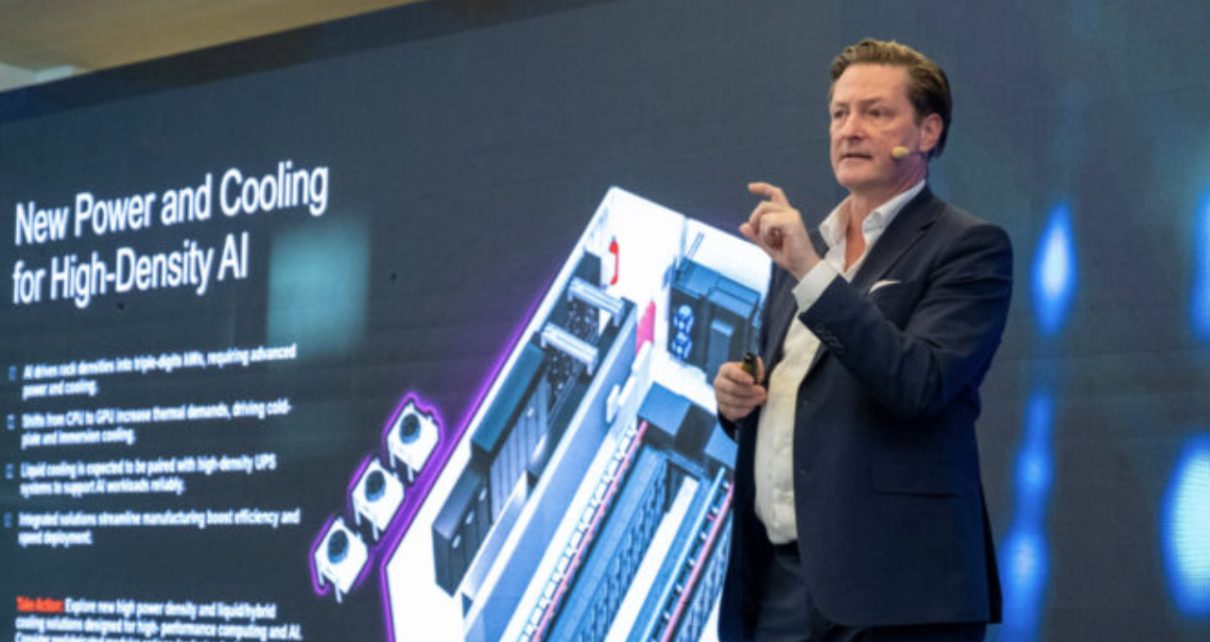Artificial intelligence is shaking up industries everywhere, and data centers are no exception. As the backbone of modern computing, these facilities are embracing AI to boost efficiency, enhance security, and streamline operations. Imagine a world where machines not only store vast amounts of information but also analyze it in real time. This transformation is already happening.
From optimizing energy usage to predicting hardware failures before they occur, the integration of artificial intelligence into data centers marks a significant shift in how we think about technology. In this blog post, we’ll explore what AI really means for data centers today and dive into the benefits it brings along with some challenges that come with its implementation. Get ready to discover how this cutting-edge technology is redefining our digital landscape!
What is Artificial Intelligence?
Artificial intelligence refers to the simulation of human intelligence in machines. These systems are designed to think, learn, and adapt like a human brain. They can analyze data, recognize patterns, and make decisions based on their findings.
At its core, AI is about creating algorithms that enable computers to perform tasks typically requiring human intellect. This includes problem-solving, understanding natural language, and even visual perception.
AI encompasses various subfields such as machine learning and deep learning. Machine learning allows systems to improve from experience without explicit programming. Deep learning dives deeper into neural networks for more complex tasks like image recognition or speech processing.
As technology evolves rapidly, artificial intelligence continues to reshape how we approach everyday challenges across industries—from healthcare to finance—and now significantly impacts data centers too.
The Role of AI in Data Centers
Artificial intelligence is transforming the landscape of data centers. Its ability to analyze vast amounts of information quickly makes it an invaluable asset.
AI optimizes operations by automating routine tasks. This allows human operators to focus on strategic initiatives rather than mundane processes.
Predictive maintenance is another key role for AI in these facilities. By analyzing equipment performance, AI can foresee potential failures before they occur, reducing downtime and costs significantly.
Energy management also benefits from AI’s capabilities. Smart algorithms monitor power consumption patterns, suggesting adjustments that lead to greater efficiency and reduced energy bills.
Furthermore, security measures are enhanced through machine learning algorithms that detect anomalies in network traffic. This proactive approach helps safeguard sensitive data against cyber threats.
In essence, AI acts as a vital partner within data centers, streamlining operations while enhancing reliability and security.
Benefits of AI in Data Centers
Artificial intelligence is transforming the landscape of data centers in remarkable ways. One major benefit is enhanced efficiency. AI algorithms analyze vast amounts of operational data, identifying patterns and optimizing resource allocation.
Predictive maintenance is another critical advantage. By monitoring equipment health in real time, AI can forecast potential failures before they happen. This proactive approach minimizes downtime and reduces repair costs.
Energy management sees significant improvements too. AI systems dynamically optimize power usage based on workloads, leading to substantial energy savings and a smaller carbon footprint.
Security also benefits from AI’s capabilities. Advanced threat detection systems continuously monitor for unusual activities, providing swift responses to potential breaches.
These advantages create smarter, more resilient data centers capable of meeting growing demands while keeping operations streamlined and cost-effective.
Challenges and Concerns
While artificial intelligence offers immense potential, it also brings forth several challenges that cannot be overlooked. One major concern is data security. As AI systems process vast amounts of sensitive information, they become prime targets for cyberattacks.
Another issue is the reliance on complex algorithms. If these models malfunction or make erroneous decisions, the consequences can be significant. Understanding and addressing algorithmic bias is also crucial to ensure fair outcomes.
Moreover, workforce implications arise with increased automation in data centers. Employees may face job displacement if roles are significantly altered by AI technology.
Regulatory compliance presents a challenge as governments struggle to keep pace with rapid advancements in AI capabilities. Balancing innovation while adhering to legal frameworks remains a delicate task for organizations utilizing artificial intelligence in their operations.
Real-life Examples of AI in Data Centers
Amazon Web Services (AWS) employs AI to optimize its data center operations. By utilizing machine learning algorithms, AWS can predict when hardware will fail. This predictive maintenance minimizes downtime and enhances service reliability.
Google Cloud also leverages AI for energy efficiency in its data centers. With deep reinforcement learning, Google has managed to reduce cooling costs significantly. The system analyzes real-time data and adjusts accordingly to maintain optimal temperatures.
Microsoft Azure incorporates AI-driven analytics for workload management. This approach helps allocate resources dynamically based on demand patterns. As a result, performance improves while operational costs decrease.
Facebook uses AI tools for monitoring server health across its global infrastructure. These systems quickly identify anomalies, ensuring high availability of services like social networking and messaging without interruption.
These examples illustrate how leading tech companies are harnessing artificial intelligence to enhance their data center capabilities effectively.
Future Predictions for AI in Data Centers
The future of artificial intelligence in data centers looks promising and transformative. As technology advances, we can expect AI to play a more integral role in optimizing operations.
Predictive maintenance will become standard practice. Data centers will leverage AI algorithms to predict equipment failures before they occur, minimizing downtime and repair costs.
Energy efficiency is another area ripe for innovation. Smart systems will continuously analyze energy consumption patterns, enabling data centers to adjust resources dynamically. This shift could lead to substantial reductions in carbon footprints.
Furthermore, the rise of edge computing will bring AI closer to data generation points. This proximity allows for quicker decision-making processes and enhanced real-time analytics.
As cybersecurity threats grow increasingly sophisticated, AI’s ability to detect anomalies in network traffic will be crucial. Continuous learning models can adapt quickly, offering robust protection against potential breaches.
Conclusion
Artificial intelligence is transforming how we think about data centers. By automating routine tasks, optimizing energy consumption, and enhancing security measures, AI technology offers a new level of efficiency and reliability.
As the digital landscape continues to evolve, organizations that harness the power of artificial intelligence will undoubtedly gain a competitive edge. The ability to analyze vast amounts of data in real-time can lead to better decision-making processes and improved service delivery.
While there are challenges associated with integrating AI into existing systems, such as costs and cybersecurity concerns, the potential benefits far outweigh these obstacles. Companies are already seeing significant improvements in operational performance through AI-driven strategies.
Looking ahead, we can only anticipate more innovations as artificial intelligence capabilities expand further within data centers. This evolution promises not just enhanced performance but also a shift towards smarter infrastructure management which could redefine our approach to data handling.
The future is bright for those willing to embrace this technological revolution.



